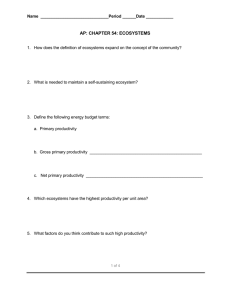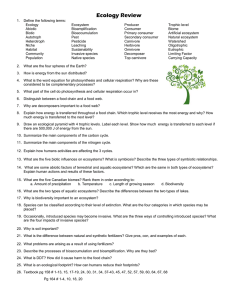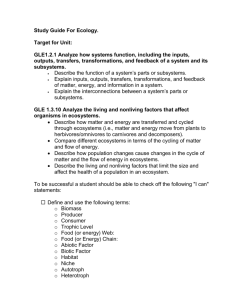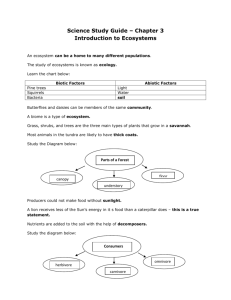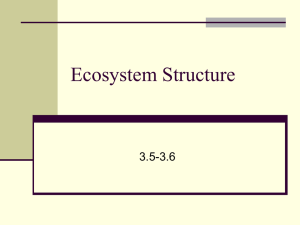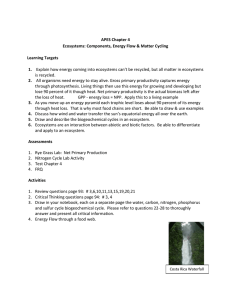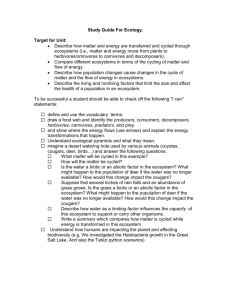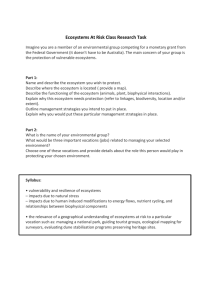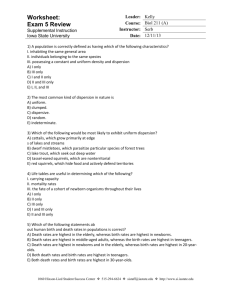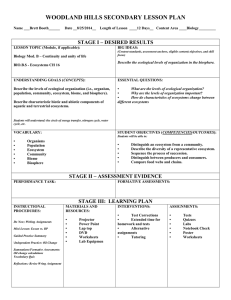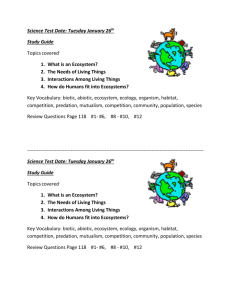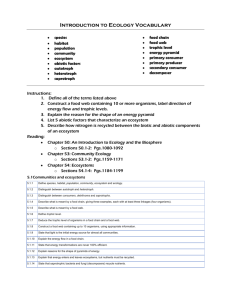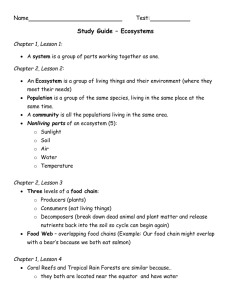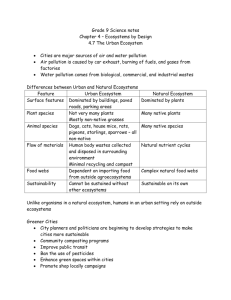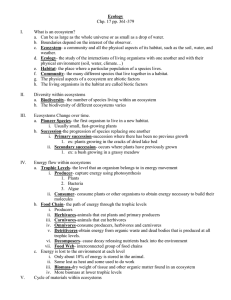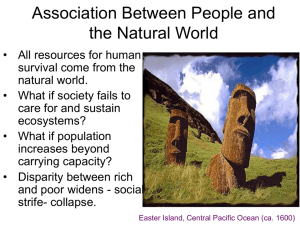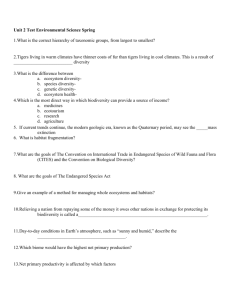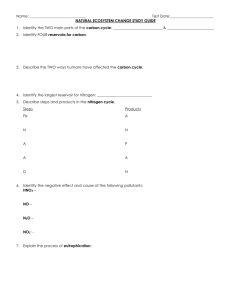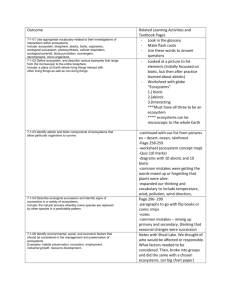grade level / course expectation
advertisement
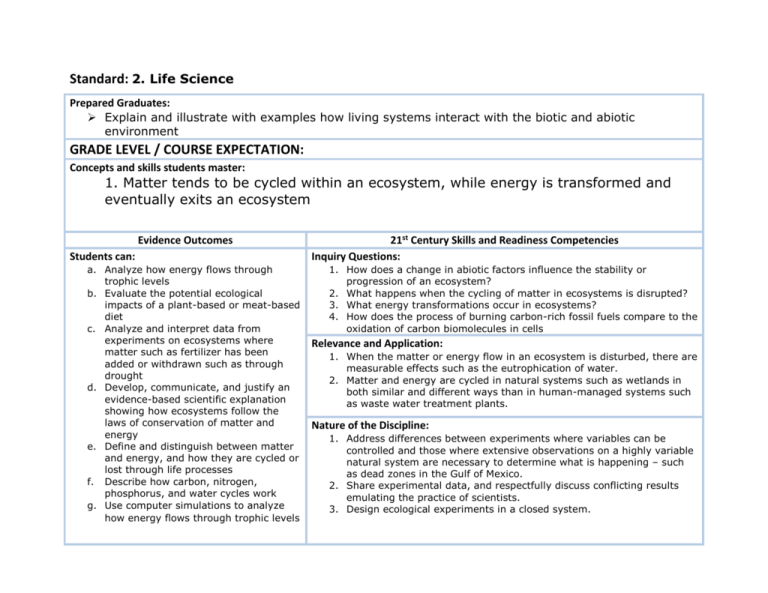
Standard: 2. Life Science Prepared Graduates: Explain and illustrate with examples how living systems interact with the biotic and abiotic environment GRADE LEVEL / COURSE EXPECTATION: Concepts and skills students master: 1. Matter tends to be cycled within an ecosystem, while energy is transformed and eventually exits an ecosystem Evidence Outcomes Students can: a. Analyze how energy flows through trophic levels b. Evaluate the potential ecological impacts of a plant-based or meat-based diet c. Analyze and interpret data from experiments on ecosystems where matter such as fertilizer has been added or withdrawn such as through drought d. Develop, communicate, and justify an evidence-based scientific explanation showing how ecosystems follow the laws of conservation of matter and energy e. Define and distinguish between matter and energy, and how they are cycled or lost through life processes f. Describe how carbon, nitrogen, phosphorus, and water cycles work g. Use computer simulations to analyze how energy flows through trophic levels 21st Century Skills and Readiness Competencies Inquiry Questions: 1. How does a change in abiotic factors influence the stability or progression of an ecosystem? 2. What happens when the cycling of matter in ecosystems is disrupted? 3. What energy transformations occur in ecosystems? 4. How does the process of burning carbon-rich fossil fuels compare to the oxidation of carbon biomolecules in cells Relevance and Application: 1. When the matter or energy flow in an ecosystem is disturbed, there are measurable effects such as the eutrophication of water. 2. Matter and energy are cycled in natural systems such as wetlands in both similar and different ways than in human-managed systems such as waste water treatment plants. Nature of the Discipline: 1. Address differences between experiments where variables can be controlled and those where extensive observations on a highly variable natural system are necessary to determine what is happening – such as dead zones in the Gulf of Mexico. 2. Share experimental data, and respectfully discuss conflicting results emulating the practice of scientists. 3. Design ecological experiments in a closed system.

